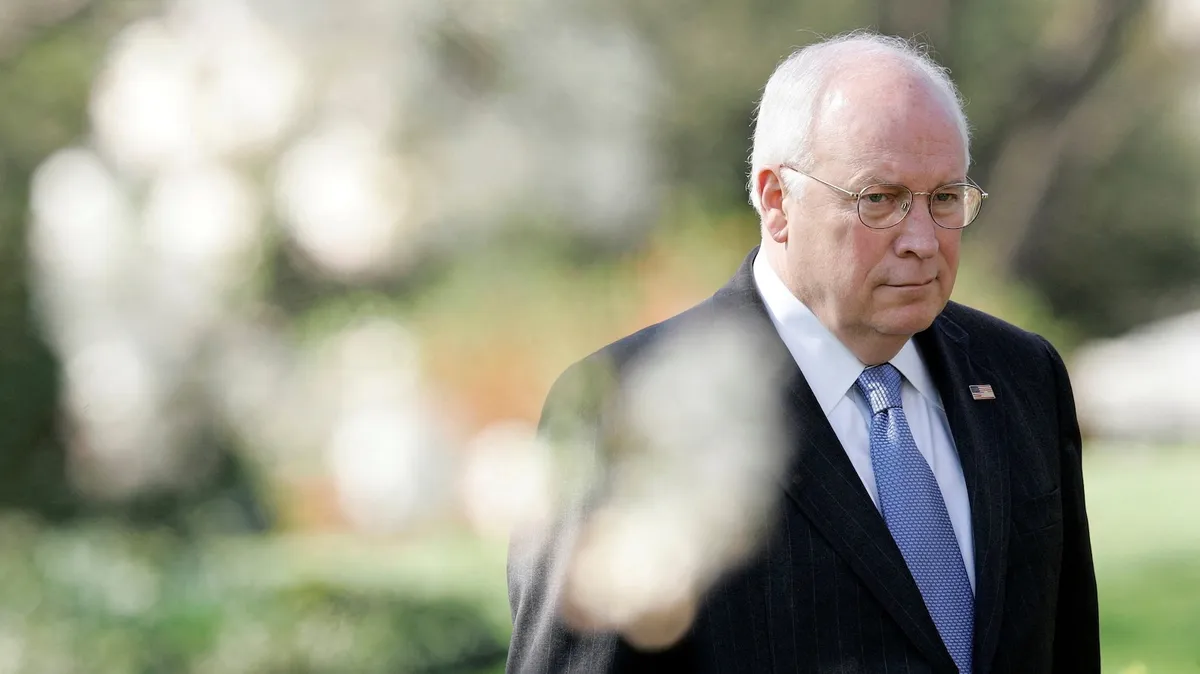
Former Vice President Dick Cheney, widely regarded as one of the most politically active and influential vice presidents in U.S. history, passed away on Monday night, according to a statement from his family. Cheney was 84 years old. Surrounded by his loving family, including his wife of 61 years, Lynne, and his daughters, Liz and Mary, Cheney died due to complications from pneumonia and cardiac and vascular disease.
The family expressed their deep gratitude for Cheney's contributions, stating, "Dick Cheney was a great and good man who taught his children and grandchildren to love our country and live lives of courage, honor, love, kindness, and fly fishing." They added, "We are grateful beyond measure for all Dick Cheney did for our country and blessed beyond measure to have loved and been loved by this noble giant of a man."
Dick Cheney's career spanned nearly four decades in Washington, D.C. He began as the youngest White House Chief of Staff under President Gerald Ford, then represented Wyoming in the U.S. House of Representatives, where he collaborated with congressional leadership and President Ronald Reagan. Cheney also served as Secretary of Defense under President George H.W. Bush and later held two terms as Vice President under his son, President George W. Bush. Additionally, he was the CEO of Halliburton, a global energy company based in Texas.
Cheney's pivotal role during the September 11 attacks in 2001 was notable. While President Bush was out of Washington, Cheney took charge of the government's response. In his memoir, "In My Time," he recalled advising the president to avoid returning to the capital, as the city was under threat. Cheney and senior staff monitored the unfolding situation from the Presidential Emergency Operations Center, demonstrating his commitment to national security during a time of crisis.
As Vice President, Cheney was instrumental in shaping much of the Bush administration's strategy in Iraq, regarded by many as a mastermind behind the controversial decision to invade the country. John Hulsman, a research fellow at The Heritage Foundation, noted Cheney's unparalleled power in U.S. history for someone in his position. Cheney himself viewed his role as an adviser to the president, emphasizing the importance of not infringing on the responsibilities of others within the administration.
In a 2013 documentary, Cheney stated, "Tell me what terrorist attacks you would have let go forward because you didn't want to be a mean and nasty fellow." His focus on safeguarding the United States and its citizens was a hallmark of his tenure, as he dealt with the complexities of modern warfare.
Even after leaving office, Cheney remained an influential figure in politics. He emerged as a vocal critic of President Barack Obama's national security policies, arguing that they compromised the safety of the country. In his 2011 memoir, Cheney warned against complacency in the face of evolving threats, urging Americans to choose serious and vigilant leaders.
Richard Bruce Cheney was born on January 30, 1941, in Lincoln, Nebraska. His family moved to Casper, Wyoming, when he was 13, where he excelled in sports and academic leadership. After a brief stint at Yale University, he returned to Wyoming to complete his education at the University of Wyoming, earning degrees in political science.
Cheney's early political experiences included internships in the Wyoming state legislature and working for Republican leaders. His career rapidly progressed, leading to his appointment as White House Chief of Staff in 1975. Following his time in Ford's administration, he served as a congressman and later as Secretary of Defense, where he played a crucial role during the Gulf War.
The U.S. invasion of Iraq in 2003 marked a significant chapter in Cheney's legacy. Although the military operation aimed to eliminate Saddam Hussein and prevent the development of weapons of mass destruction, the conflict led to a prolonged military presence and significant casualties. Cheney was often criticized for his role in promoting the war, facing backlash from various quarters for the decisions made during this period.
Throughout his life, Cheney faced numerous health challenges, including multiple heart attacks and surgeries. In 2010, he underwent a heart transplant after years of battling heart disease. His experiences with health issues were chronicled in his book "Heart," co-authored with his cardiologist.
Dick Cheney's legacy remains complex and contentious. He is remembered as a powerful vice president who expanded executive authority and was a key architect of the U.S. response to terrorism after 9/11. His support for controversial interrogation techniques, along with his connections to the energy industry, drew scrutiny and criticism throughout his career.
Despite the controversies, Cheney's influence on American politics, particularly in matters of national security, is undeniable. His daughter, Liz Cheney, continues to carry on the family's political legacy, navigating the complexities of modern Republican politics.
As the nation reflects on Cheney's life and contributions, his role in shaping U.S. policy during a pivotal era will undoubtedly be studied and debated for years to come.